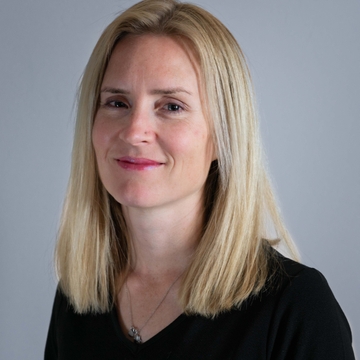Preparing for Disaster: UNM Hospital Participates in Region-Wide Emergency Training

Pathway to Healing
UNM Health Offers Expanded Access to Eating Disorders Clinic
People living with eating disorders often present with a complex picture of interrelated medical and psychiatric conditions.
The University of New Mexico's newly expanded Eating Disorders Clinic will offer patients access to diagnosis, medical treatment and referral to therapy and nutritional counseling, says director Kristina Sowar, MD.
Sowar, an associate professor in UNM's Department of Psychiatry & Behavioral Sciences who is board certified in child, adolescent and adult psychiatry, has treated patients with eating disorders for eight years.
"It's a longstanding passion of mine to better develop eating disorders care in this state, given the relative paucity of services, especially from a psychiatric perspective," she says. The clinic currently accepts referrals from primary care providers, other psychiatrists and the UNM Hospital emergency department.
"When we see people for an evaluation, that includes a thorough medical history and then consideration of possible contributors, like thyroid, celiac disease or other intestinal disorders," Sowar says. "We're just making sure that we're evaluating any potential underlying medical causes."
Sowar can prescribe medications for conditions like anxiety or depression that may coexist with an eating disorder, but she typically refers to them to psychotherapy and nutritional counseling to augment their treatment.
"My approach is trying to focus on doing a thorough and thoughtful diagnosis," she says. "I really work to be leading an individual's treatment planning so we're ensuring they have adequate medical, therapeutic and nutritional support."
The majority of the patients who come to Sowar's clinic suffer from anorexia or bulemia, but others experience binge eating disorder or the newer diagnosis of Avoidant/Restrictive Food Intake Disorder (known as ARFID), which involves highly selective eating habits.
Sowar sees patients ranging from adolescence through adulthood, and while there is a stereotype that women are more prone to eating disorders, "I think there are a lot of men who are not adequately treated," she says.
"We have adolescents who come in who are in the first several months or a year of an eating disorder," she says. In those cases, early intervention and restoration of normal weight bodes well for a long-term recovery.
But Sowar also sees many patients who have resisted acknowledging their eating disorder, or who have been unsuccessful in recovering from it. "I certainly have people that have had eating disorders for 20 or 30 years."
In addition to Sowar, the expanded outpatient clinic will include residents and fellows in psychiatry, as well as advanced practice providers. In time, she also hopes to add nutritionists to the staff.